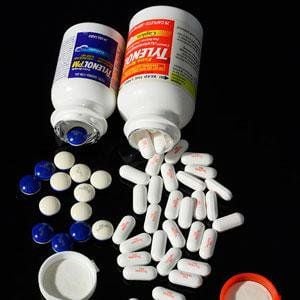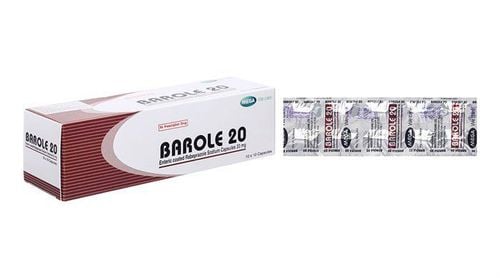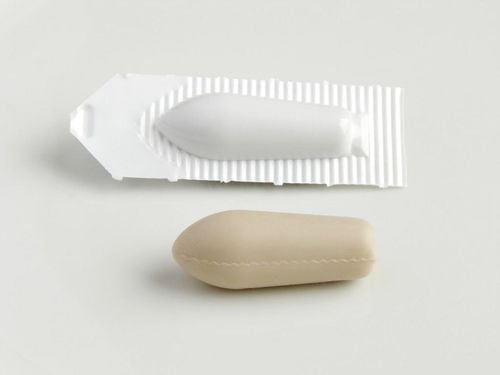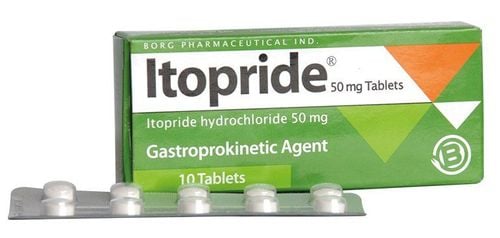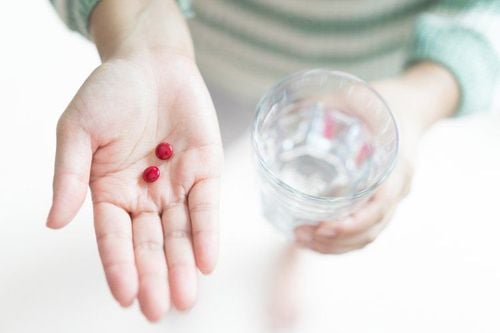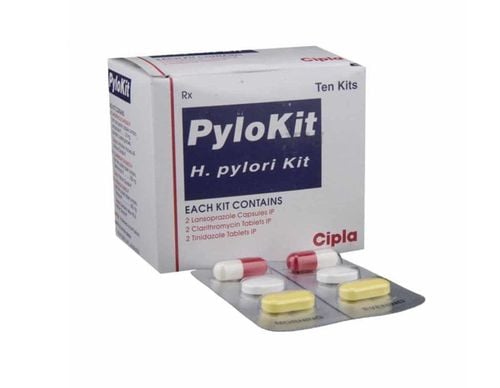Gestid is a drug that is effective in reducing symptoms of increased acid secretion due to peptic ulcers controlling signs of gastritis, and gastroesophageal reflux disease... It is important to take this drug according to a specialist's instructions to ensure its effectiveness and avoid any potential side effects.
1. What is the effect of Gestid?
Gestid contains the active ingredients of Aluminum hydroxide, Magnesium hydroxide, Magnesium Silicate, and Simethicone. Of which, Aluminum hydroxide is the ingredient with the highest content, effective in neutralizing the pH of gastric juice, thus inhibiting the protein-digesting effect of pepsin, bringing effective effects to people with gastric ulcers.
2. Indications and contraindications of Gestid
2.1. Indications
Gestid is indicated for use in the following cases:
- Reduce symptoms of hyperacidity in patients with peptic ulcers
- Relieve symptoms of gastritis, and gastroesophageal reflux.
- Relieve hiatal hernia and pain due to postoperative bloating.
2.2. Contraindications
Gestid is contraindicated for people who are sensitive to aluminum hydroxide, and patients with hypophosphatemia. Do not use this drug for young children due to the risk of aluminum poisoning, particularly in those showing signs of dehydration or kidney failure.
3. Dosage and how to use Gestid
Gestid is a drug used orally with a reference dose of 1-2 tablets/time, 4 times a day. The best times to use it are after each meal and before going to bed.
4. Side effects of Gestid
While using Gestid, patients may experience some of the following side effects:
- Osteomalacia, brain-related diseases, dementia, and microcytic anemia occur in people with chronic kidney failure.
- Using the drug in high doses or for an extended duration can reduce phosphate levels in the blood.
- Patients with uremia may experience aluminum poisoning and osteomalacia when taking the drug.
- Some other common side effects include constipation, bitter mouth, abdominal rigidity, hard stools, nausea, vomiting, and pale stools.
- Some rare side effects include hypophosphatemia and hypomagnesemia.
5. Drug interactions
Similar to other Western medicines, Gestid can have the following effects when taken with other drugs.
- Altering the absorption capacity of drugs such as tetracycline, digoxin, indomethacin, iron salts, isoniazid, and allopurinol. In addition, Gestid when taken with benzodiazepines, corticosteroids, penicillamine, phenothiazine, ranitidine, ketoconazole, and itraconazole will have reduced therapeutic effect.
- Gestid has the risk of reducing the absorption of tetracyclines when used together due to their ability to form complexes.
6. Some notes when using Gestid
- Gestid should be used with caution in people with a history of or currently suffering from congestive heart failure, kidney failure, edema, or cirrhosis.
- Cautious use for people on a low-sodium diet and for people who have recently had gastrointestinal.
- Elderly people taking the drug may experience constipation due to hardened stools, hence Gestid dosage should be adjusted or replaced with alternatives to prevent this adverse effect.
- If using Gestid for a long time, the patient needs to have their phosphate blood test regularly and periodically.
- Take the drug on time every day, avoid missing scheduled doses, and do not make up for a missed dose. Follow your doctor's prescribed dosage for Gestid as overdosing can be severely detrimental to your health.
Here is some information to help you gain a general overview of Gestid. It is recommended that you read the instructions carefully before use, and the medication should only be used with a doctor's prescription to treat the disease safely and effectively, avoiding unwanted side effects.
Visit the Vinmec International General Hospital website for more information on health, nutrition, and beauty to help protect the well-being of yourself and your family.
Please dial HOTLINE for more information or register for an appointment HERE. Download MyVinmec app to make appointments faster and to manage your bookings easily.




